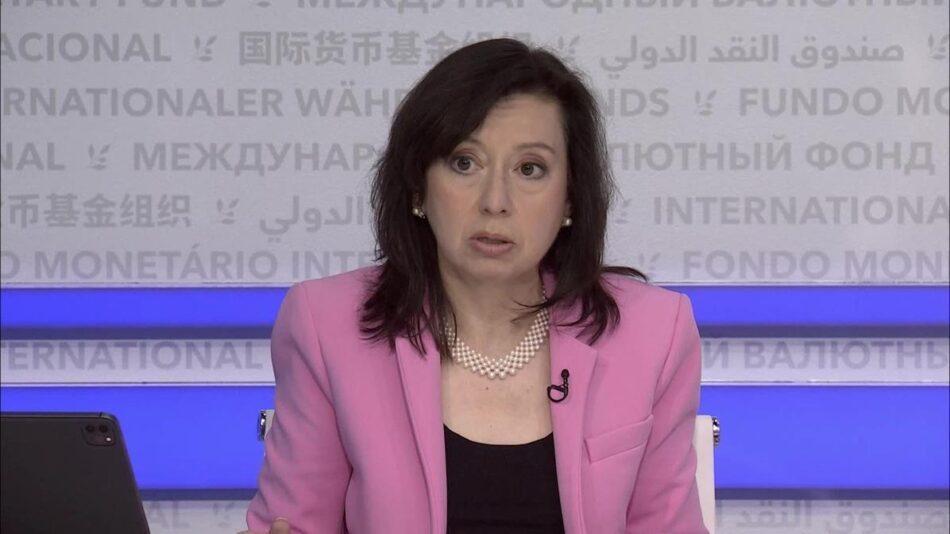IMF Regular Briefing US / ECB / Debt

The fight against global inflation is reaching a stage where major advanced economies are reaching a point of divergence, the IMF signaled Thursday, (June 6) in Washington, D.C.
The European Central Bank announced its first rate cut since 2019, when it cut interest on its loans to banks to 3.75% from 4.00% Thursday.
“We have seen significant progress in reducing inflation in Europe. We assess that ECB policy is appropriate. So as we’ve said in the past, we did think that it was appropriate for the ECB to begin cutting in June. But it’s also important for the ECB to maintain its data dependent approach and its meeting by meeting approach. And as in the case of the US, we have seen, of course, inflation coming down,” said IMF spokesperson Julie Kozack.
The US economy has seen inflation moderate, but growth remains strong compared to other major global economies. That has led some analysts to question if the Federal Reserve can also begin to cut rates, or if it may be necessary even to hike further to tame inflation.
“We do expect that the Fed should be cautious. We recommend a cautious and data-dependent approach in deciding policy in the coming months. And we do expect that there does need to be some slowing of the US economy in 2024,” Kozack told reporters at a regularly scheduled news briefing at the Fund’s headquarters.
And during a week in which many countries including Mexico, South Africa and India have held national elections, the Fund is recommending against expansive new social spending but urging members to begin consolidating their fiscal stance at a time of high interest rates and borrowing costs.
“Despite the resilience of the global economy, many countries are continuing to struggle with high levels of debt and high fiscal deficits. And this is happening at the same time that interest rates are high and medium-term growth prospects continue to be weak. So, our advice at the time of the Spring Meetings and it continues to be our advice is that this is the time for countries to really begin fiscal consolidation. And it’s important to bring fiscal positions back to their pre-pandemic levels. So, countries do need decisive efforts to safeguard public finances and to rebuild fiscal buffers,” said Kozack.
A copy of the full transcript is available at IMF.org





